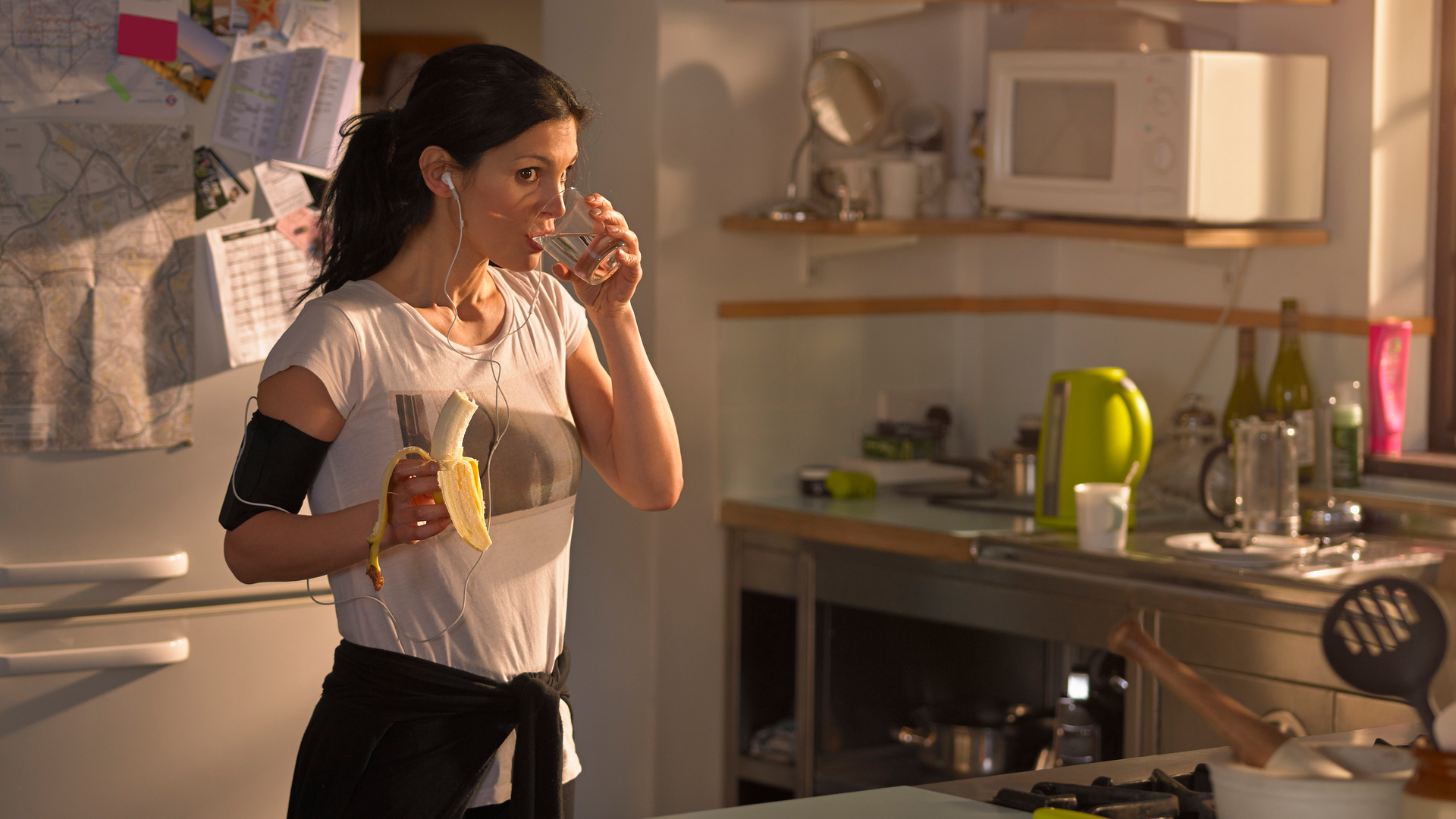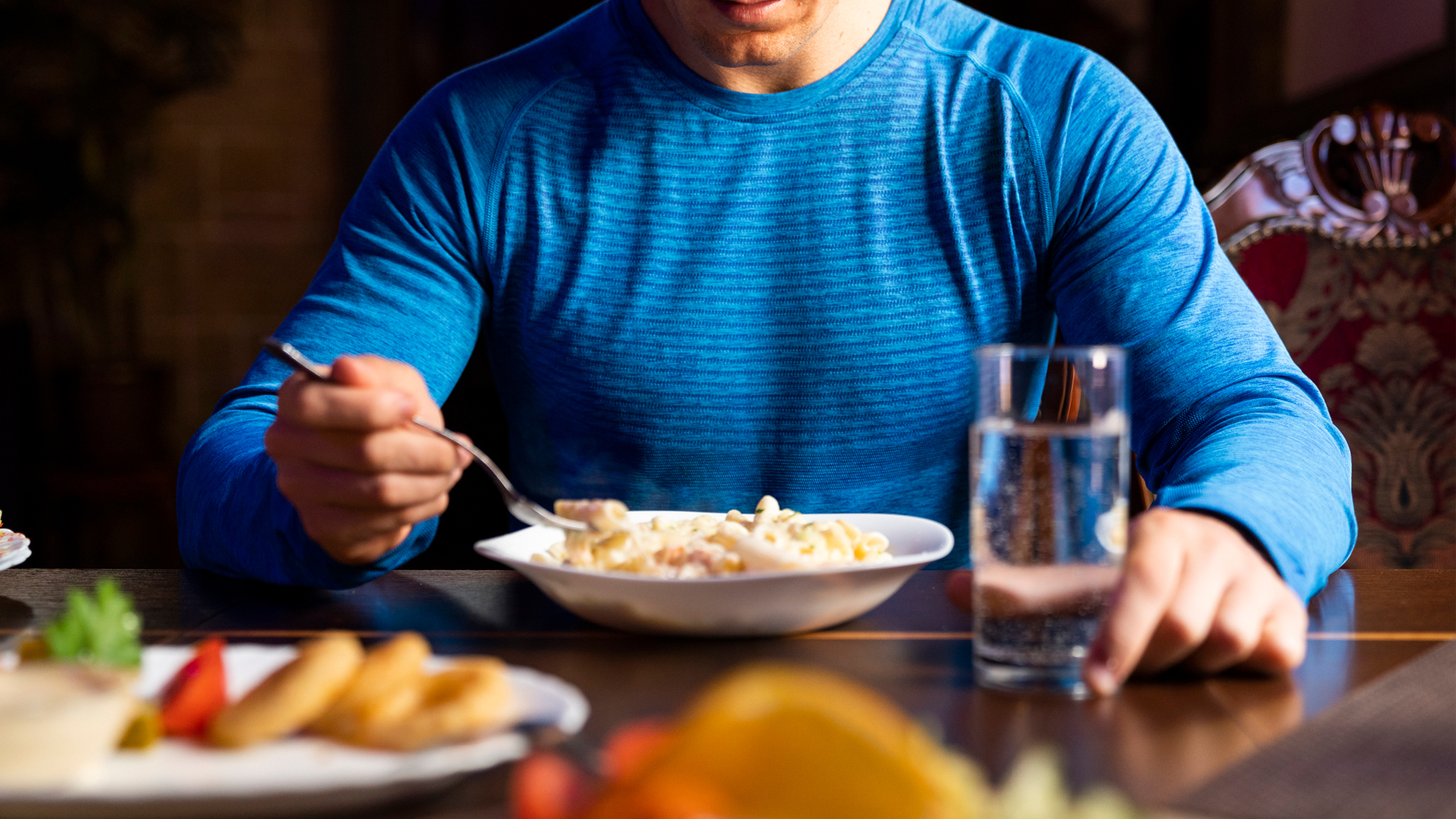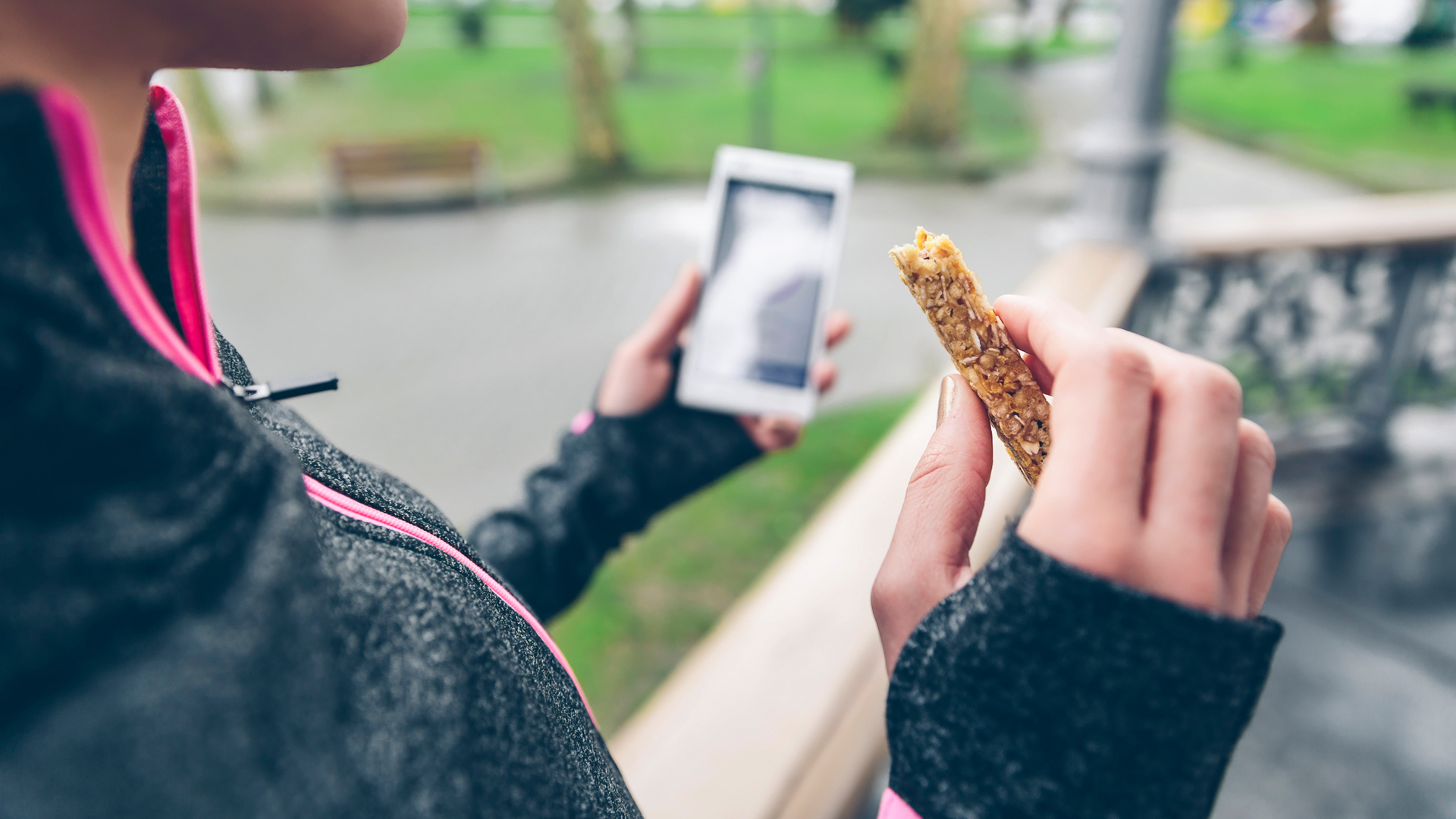How long should you wait to exercise after eating?
All you need to know about exercise after eating, from timing to what foods to eat

Get the world’s most fascinating discoveries delivered straight to your inbox.
You are now subscribed
Your newsletter sign-up was successful
Want to add more newsletters?

Delivered Daily
Daily Newsletter
Sign up for the latest discoveries, groundbreaking research and fascinating breakthroughs that impact you and the wider world direct to your inbox.

Once a week
Life's Little Mysteries
Feed your curiosity with an exclusive mystery every week, solved with science and delivered direct to your inbox before it's seen anywhere else.

Once a week
How It Works
Sign up to our free science & technology newsletter for your weekly fix of fascinating articles, quick quizzes, amazing images, and more

Delivered daily
Space.com Newsletter
Breaking space news, the latest updates on rocket launches, skywatching events and more!

Once a month
Watch This Space
Sign up to our monthly entertainment newsletter to keep up with all our coverage of the latest sci-fi and space movies, tv shows, games and books.

Once a week
Night Sky This Week
Discover this week's must-see night sky events, moon phases, and stunning astrophotos. Sign up for our skywatching newsletter and explore the universe with us!
Join the club
Get full access to premium articles, exclusive features and a growing list of member rewards.
When should you exercise after eating? It’s not surprising there’s debate about this question. Slotting physical activity into your everyday routine is a fantastic way to make it sustainable, but timing is crucial to ensure you maximize your workout and avoid feeling sluggish.
If you’ve ever felt bloated during a workout, you’re far from alone. Whether it’s getting outdoors on the bike or opting for an indoor run on one of the best treadmills, it can be frustrating if you’ve psyched yourself up to get your daily exercise in, only to find yourself being unable to perform at your best. Thankfully, what you eat pre-workout (and what you don’t eat) can make a difference.
Here, we’ll consider the factors that influence how long to wait to exercise after eating. We’ve consulted experts for their take on what to eat and avoid to enhance your workouts and keep unwanted side effects at bay.
There’s no one-size-fits-all when it comes to exercise after eating. While there are guidelines, it varies depending on the type of activity, portion size, and your individualized response. It’s worth experimenting until you hit the sweet spot. Try jotting down your pre-workout snacks or meals and how you felt to spot patterns.
Should you exercise after eating?
Nutrition and workouts go hand in hand — you need sufficient food to fuel your workout. “Studies suggest eating carbohydrates before exercise can improve workout performance and may allow you to work out for a longer time or at a higher intensity,” says Lena Beal, registered dietitian nutritionist and national spokesperson for the Academy of Nutrition and Dietetics. Your body breaks down food and transports the nutrients to your muscles, giving you an energy boost during exercise.

Beal is a cardiovascular dietitian at Piedmont Atlanta Hospital, an author and public speaker. Beal served eight years as the legislative chair for both the Greater Atlanta and Georgia Academy of Nutrition and Dietetics. She is a graduate of Southern University and A&M College and earned a master’s degree from Colorado State University.
But individuals respond to exercise after eating differently. If you’re prone to feeling nauseous, a large, pre-workout meal could negatively impact your enjoyment and make you inclined to cut your session short. It’s a balancing act. If you don’t eat enough before activity, you may experience fatigue. But eat too soon beforehand, and you risk unwelcome gastrointestinal symptoms.
Experiment to figure out what works best for you. You’re more likely to stick to your workout plan if you find a way of integrating it into your routine. According to the American Dietetic Association, exercise after eating is highly individual — it’s largely down to personal preference.
Get the world’s most fascinating discoveries delivered straight to your inbox.
Timing is everything. While there’s no definitive answer to how long to wait to exercise after eating, it generally ranges between 30 minutes and three hours, depending on various factors.

With exercise after eating, portion size matters. “Although research is limited, if you consume a small meal or snack, you should generally wait at least 30 minutes before physical activity,” says Lon Ben-Asher, registered dietitian and nutritionist at Pritikin Longevity Center. “If you exercise in the morning, try eating a small snack like a banana and peanut butter and allow 30 minutes before setting out.”

Ben-Asher is a registered dietitian who holds a Bachelor of Science in Agricultural, Life and Nutrition Sciences from the University of Florida and a Masters' in Dietetics and Nutrition. He is also a member of the Academy of Nutrition and Dietetics.
“If you consume a meal, it may be best to exercise one to three hours after eating to avoid negative gastrointestinal effects. If you eat a very large meal, it will take a lot longer to metabolize and digest the food, which can affect blood flow and performance,” he adds.
Remember to take into account the intensity of exercise. Research published in the journal Nutrients suggests eating before endurance activity (60 minutes+) boosts your performance. “Endurance athletes benefit from eating two to three hours before a workout because it delays time to exhaustion and prevents early fatigue,” explains Beal.
There’s little evidence of enhanced performance when you eat before shorter duration exercise, according to a 2020 review in Nutrition. But if you find a pre-workout snack makes you feel raring to go and stops you from feeling peckish, it may help you exercise for longer.
The type of activity also affects your ability to tolerate eating beforehand. You can comfortably engage in gentle exercise like walking sooner after food, compared to intense activities like running, according to a 2013 Polish review.
What should you eat before a workout?
Not only when you eat, but what you eat impacts your performance.
“Your pre-workout meal should consist mostly of carbs and some protein,” says Beal. “These nutrients are digested faster and provide fuel in a shorter time period.” Consuming a carbohydrate-rich snack or meal gives you maximum energy and staves off hunger pangs.
Don’t forget to drink water too. When you’re dehydrated, your muscles tire easily, making it hard to perform at your best, according to the American Dietetic Association. Drinking sufficient water regulates your body temperature and reduces the chance of overheating during exercise. Aim to sip water throughout the day to keep your hydration levels topped up. The American Council on Exercise recommends drinking 17-20 ounces of water two hours before your workout.
On a busy schedule? You may only have a small window to eat before exercise. “If pressed for time, you can still eat a meal as few as 45–60 minutes before your workout,” says Beal. “The meal should be small and simple to aid digestion and absorption. Think Greek yogurt and fruit or a piece of fruit, such as a banana, orange, or apple.”

If you’re short on time, you may be tempted by quick snacks to boost energy, whether you prefer one of the best protein bars or an energy shake. But check the labels. According to the American Council on Exercise, these products are often laden with sugar, which may give you an initial rush but won’t last the distance.
Certain foods can derail your workout if you eat them soon beforehand.
“Foods that are very high in fat should be avoided,” says Beal. “They are much slower to digest, and can contribute to bloating and gas which affect your performance.”
Think foods prepared in butter or oil, fatty meats, and fried foods. Food with a high-fat content takes longer to absorb, and your body has to divide its energy between digestion and exercise. This turns your workout into a slog.
While fiber-rich foods are vital for gut health, give them a wide berth immediately pre-workout. “It’s best to limit intake of salads, broccoli, cauliflower, Brussels sprouts, cabbage, and high-fiber whole grains before a workout,” cautions Ben-Asher. “Because these foods are slower to digest, it can lead to unwanted gastrointestinal issues. This includes reflux, bloating, abdominal discomfort, and nausea, ultimately affecting athletic performance.” Reap the benefits of these foods by eating them after your workout instead.
This article is for informational purposes only and is not meant to offer medical advice.
Louise Bond is a UK-based writer specializing in health and wellbeing. She has over eight years of experience in management within health and care and brings this passion and expertise to her writing. Louise has been published in The Guardian, Planet Mindful and Psychreg among others. She is at her happiest when she is out in nature, whether that’s on an invigorating hike or pottering in the garden.
 Live Science Plus
Live Science Plus











